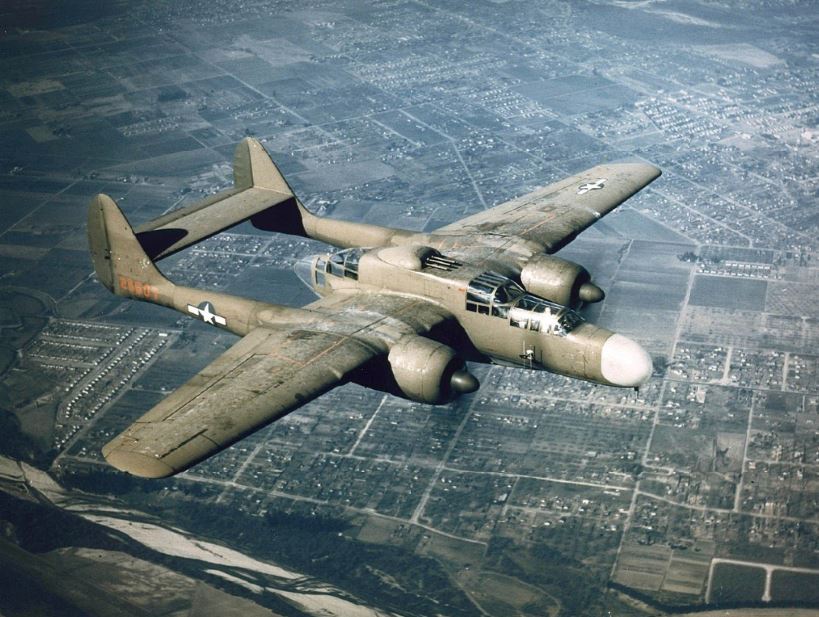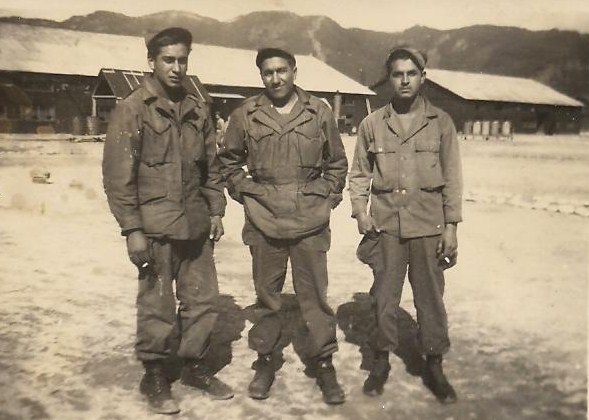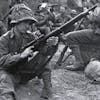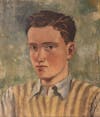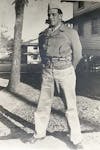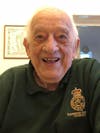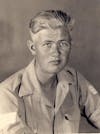68 Leslie Cook 5 - Burma WWII
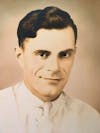
Pic above: Henry Topf
Part Five - More entertaining WW2 tales plus some great family stories from Gabriel Cervantes and Sidney Topf.
Australian Leslie Eric Cook was in the second 14th of the Australian Imperial Force. He served in Greece, Crete, New Guinea, Borneo and Japan.
Feedback/reviews - Apple - https://itunes.apple.com/gb/podcast/ww2-fighting-through-from-dunkirk-to-hamburg-war-diary/id624581457?mt=2
Follow me on Twitter - https://twitter.com/PaulCheall
Follow me on Facebook - https://www.facebook.com/FightingThroughPodcast
YouTube channel - Loads of my own videos - Dunkirk Mole, Gold Beach, much more. https://www.youtube.com/user/paulcheall/videos
Interested in Bill Cheall's book? Link here for more information.
Fighting Through from Dunkirk to Hamburg, hardback, paperback and Kindle etc.
Grateful thanks to recent sponsors through Patreon or Buy Me a Coffee:
Sidney 'Rusty' Topf
Black Widow Night Fighter
https://en.wikipedia.org/wiki/Northrop_P-61_Black_Widow
The Topf family stories!
My granddad Henry Topf served as an American Soldier during WWII most significantly during the Battle of the Buldge. My father Henry (Sonny) Topf followed in his footsteps and served in The US Airforce during Vietnam, I followed my father (but into the Army) and served for 24 years. I am proud to say my son Shane has chosen to continue service and is currently in medical school as an Army Lieutenant.
Below: My grandfather Henry Topf with some of his buddy's from his outfit named in one photo. The other picture of him next to the Berlin photo are the same but two more that I don’t have the names unfortunately. I have attached a clip from his hometown newspaper from Wellsboro, Pennsylvania that identifies him and his outfit etc. I think you know the other people in the photos. His son Henry Topf Jr, Myself and my son (Shane).
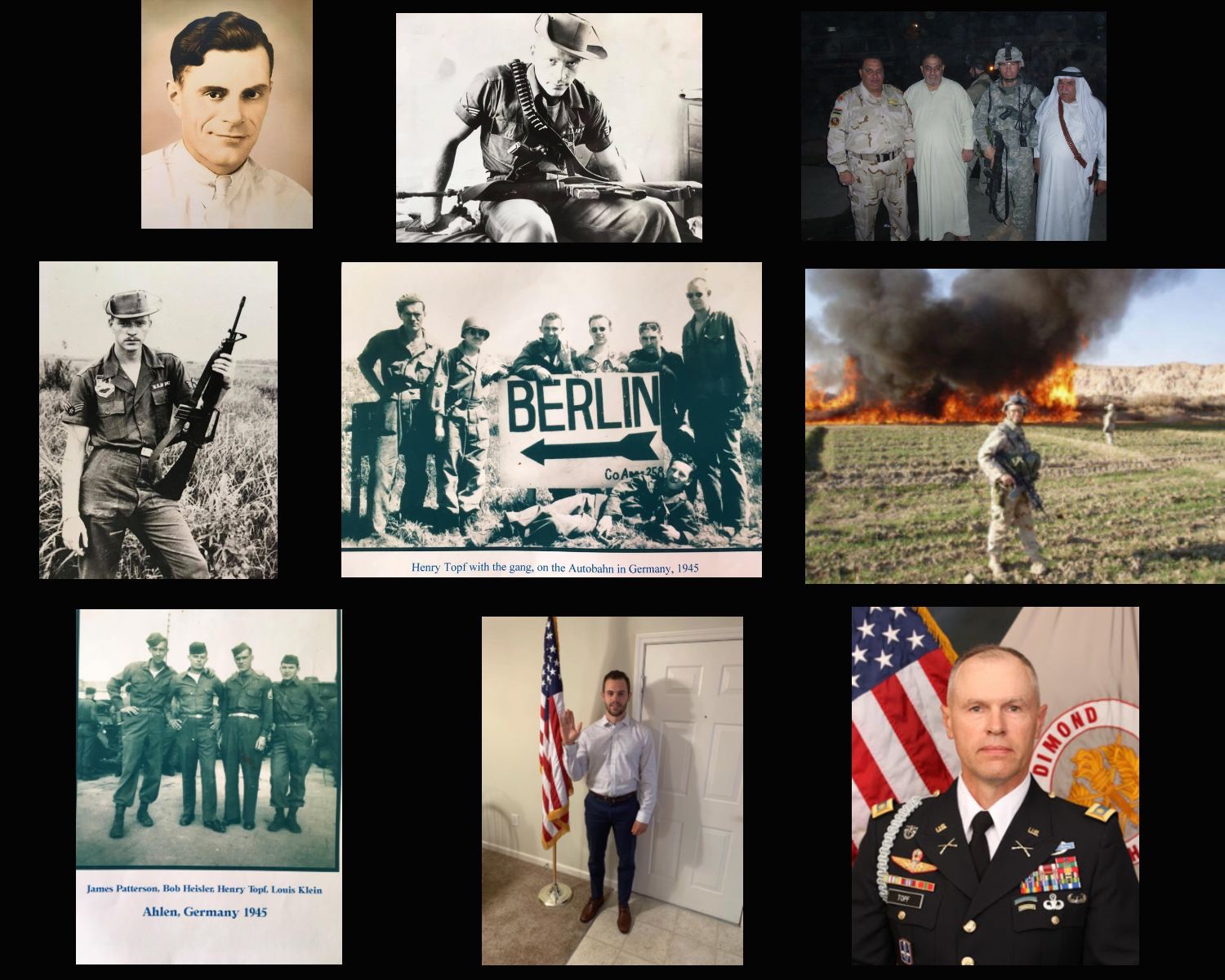
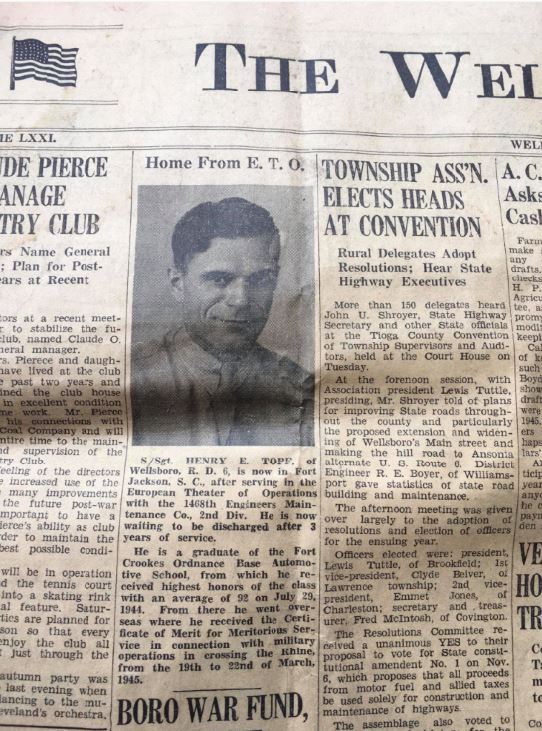
Antonio Y Cervantes WW2
My father, his two brothers and my mom's two brothers (all first generation
American boys of Mexican born parents) were all in the army during the war.
My dad served in the Philippines in the last month of the war, and was part
of the Occupation of Japan. I fortunately sat him down and wrote down most
of his experiences during the war.
His younger brother was shot by a German wearing an American uniform. He
survived the war and must have been a forgiving person, because over the
years he probably owned 15 Volkswagens!
Gabriel Cervantes, Appleton Wisconsin
Pop middle with army buddies Feb 4, 1946, Japan
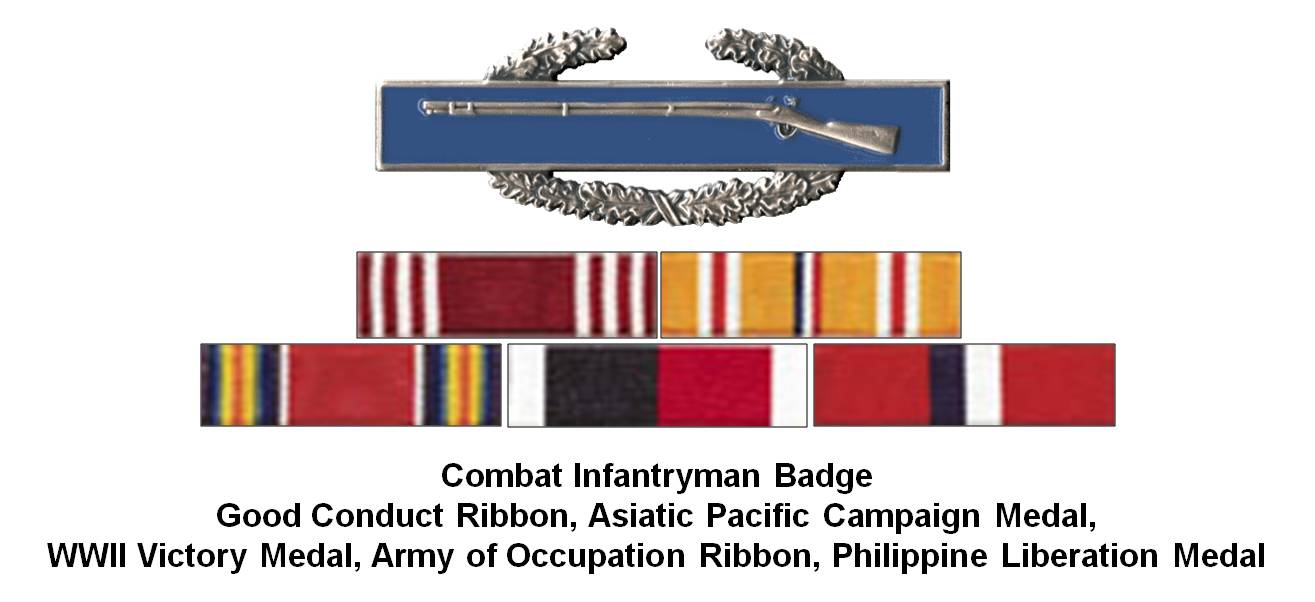
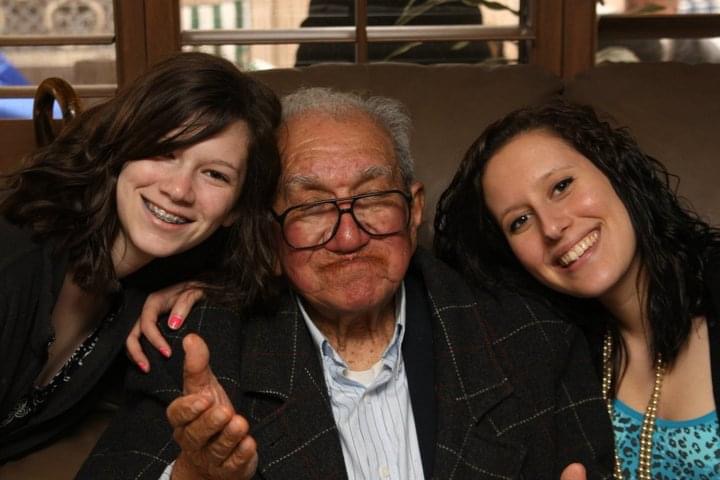
Fighting Through Podcast Episode 68 Leslie Cook Part 5 – Burma
1943/44 in the Middle East and more.
More great unpublished history of the second world war and more! WWII
Intros
Intro Passage 1 - second world war
Two of the attackers had occupied an abandoned weapon-pit on a mound above and behind me, less than 3 metres away. I could hear them, but couldn’t see them. The rain was pouring down and the night was pitch black. If I used a grenade it would probably roll back on me before exploding. If I fired at them there was almost no chance of success, but an absolute certainty that the flash would disclose my presence and result in instant retribution …
Intro Passage 2 - second world war
This was the only time during the war that I can remember being unarmed in a forward area. Looking back now, I cannot imagine what possessed me to do such a foolish thing. I was a Bren-gunner at the time, but on this occasion I couldn’t have carried the Bren, but I could and should have borrowed a rifle. I was about 20 metres from the standing-patrol when there was a burst of automatic fire followed by a general exchange of fire.
Intro Passage 3
I suddenly became aware that something was moving in the jungle alongside the track about ten metres in front of me. It was a stealthy sound of someone or something trying to move quietly, and it sounded more human than animal. I switched the change-lever on the Bren from “safety” to “automatic” and ensured that my grenades were at hand.
Intro Passage 4
I was forward-scout on a patrol. This is a position where one moves very warily being careful not to make any sound or rapid movement and, at the same time, keeps a watchful eye on the area in front. Even leaves turned back to front is an alarm signal. The scout, and indeed the whole patrol, moves close to the edge of the track to reduce its visibility and to enable it to fade into the jungle instantly if necessary.
Welcome
Hello again and another warm WW2 welcome to the Fighting Through second world war podcast.
I’m Paul Cheall, son of Bill Cheall whose WWII memoirs have been published by Pen and Sword – in FTFDTH.
The aim of this podcast is to give you the stories behind the story. You’ll hear memoirs, and interviews of veterans in all the countries and all the forces. I dare you to listen!
This episode
Today we’re going to continue with a final instalment in the Les Cook series, moving over to Burma and the end of his war with tales from 1945/46. This is probably going to be quite a long episode so tighten your helmet straps – it’s going to be a good one. And I’ve got a PS which at many levels you definitely do not want to miss. Remember with the FTP WW2 the action and interest is not over till I say bye bye now!
I’m going straight in to a family story now from listener Gabriel Cervantes {serr von tes}. Gabriel wrote in with impeccable timing for this episode as you’re about to find out.
Family stories 1 - ANTONIO Y. CERVANTES
Hello Paul! I just discovered your show this past week, and I love it!
Good man Gabriel.
My father, his two brothers and my mom's two brothers (all first generation
American boys of Mexican born parents) were all in the army during the war.
My dad served in the Philippines in the last month of the war, and was part
of the Occupation of Japan. I fortunately sat him down and wrote down most
of his experiences during the war.
His younger brother was shot by a German wearing an American uniform. He
survived the war and must have been a forgiving person, because over the
years he probably owned 15 Volkswagens!
Gabriel Cervantes
Appleton Wisconsin
And Gabriel has followed up with a few pics of his family history which I’ve put in the show notes on the web site at FTP.
So here we go, as kindly supplied by Gabriel
The PACIFIC WAR SERVICE OF his Dad PFC ANTONIO Y. CERVANTES,
of the US ARMY -
ARMY INDUCTION/BOOT CAMP
I was originally drafted before Pearl Harbor, but ended up 4F (unfit for military service) because of flat feet and a hernia operation. But the draft board called me back in November 1944. A girl named Betty was a customer of our small grocery store, and she worked for the draft board. My mother went to her and tried to talk her out of taking me, as my two brothers were already in the Army. Betty felt bad; she tried to explain that she was just working there. I told Betty to just ignore my mother.
I did boot camp in Camp Hood, Texas. It was cold and miserable. The Company across from us was shipped off to fight in the Battle of the Bulge. Even though I think the Texans were still fighting the Alamo and didn’t like us Mexicans, they left me alone. I did what I was told and made the best of it. After boot camp we got two weeks leave, and then reported to Fort Ord, CA.
ARRIVAL IN THE PHILIPPINES
We left from San Francisco aboard the U.S.S. General A.E. Anderson. We were at sea about 45 days, with a stop in New Guinea, on the way to Manila. There were six thousand of us on board. The ship was rolling and I was sicker than a dog. I was on guard duty one night and was caught asleep on watch. I argued with the sergeant who found me and I claimed I had been awake. I was still put in the brig for one day. While on ship we heard President Roosevelt had died, and later on that the Germans surrendered.
We arrived in Manila and were there one day. It was miserable there, really hot. We boarded another ship and went to Leyte (Late). We were there about two weeks, working details and digging near the airstrip. There we saw the P-61 Black Widow night fighters.
COMBAT
After that we were shipped to Mindanao. There I saw a GI with a hammer, and I asked another guy what that was about. He said that the Japs had gold fillings, and this guy would use the hammer to knock their teeth out.
We were there for maybe a day, and then were ordered down a dirt road to meet our company. On the side of the road, was a creek, and on a mound next to the creek were about twenty dead Japanese. There were flies everywhere. The guys I was with said “Look at that!”, but I just kept my eyes straight ahead.
We found our company, and I got a foxhole with another private who had been in Mindanao a while. The first thing I saw was an arm sticking out from under the dirt nearby. I asked about it, and he said that was one of the Japanese who had tried to infiltrate the night before. I forget that GI’s name, at night we sure talked a lot about women while in that foxhole. One night we were too loud, because a sergeant called out “Quiet you SOBs or I’ll come over there and shut you up!”
A few days after I got there, we were on a patrol. A couple of GI’s ahead of me passed by a piece of corrugated steel leaning next to a tree. A corporal we called Lindy came up to us, pulled back the corrugated steel and exposed a Japanese soldier standing behind it, and killed him. Later on that same patrol, while walking in single file we suddenly we heard yelling from six or seven shirtless, unarmed Japanese charging at us
head on. A BAR man (Browning Automatic Rifle) with us shot them all with one burst, the rest of us never got off a shot. Our sergeant said “Let’s get the hell out of here.” and we turned around and went back. I could hear the moans of the Japanese for quite a distance while heading back.
One morning, just as I was waking up, I heard a pop, and someone yelled “Mortar!” Later while heading for the chow line I saw two bodies covered with ponchos. All I could see was their boots. I asked “What the heck happened there?” And some explained “You know that mortar this morning? It fell right in their foxhole. One was still lying down and the other was sitting up, stretching when it hit them” It had hit two foxholes over from mine.
Another time, we were on a “push” behind three tanks. I heard an explosion, and didn’t think about it; I figured it was a gun from a tank. A day or two later, a friend named Estrada from Silver City, New Mexico, saw me and said “You know Tony, I’m glad to see you. I saw a Jap on a suicide run, running toward one of the tanks with a box of explosives over his head, and I thought you were dead.” That was the explosion I‘d heard.
I was woken up one night, to serve watch, by a GI from a heavy weapons company that had come to share our foxhole. I noticed the silhouette of someone crawling on all fours towards me, I asked the GI “Hey, what’s that?” The GI said “Don’t shoot, he’s one of ours.” He was coming back from taking a leak. The next day someone was cussing out that guy I’d seen crawling, pointing towards me and saying “You’re lucky he didn’t shoot you!” He was right, there were some trigger happy GI’s there.
One time a couple of GI’s were with a Filipino Moro (a Muslim inhabitant of the Phillipines), who was holding a canvas bag. The guys wanted me to look in the bag. I wouldn’t look, because they told me inside were the heads of three Japanese. [ouch]
Once we were ordered to clean up, as General McArthur was going to pay us a visit. We waited and waited and waited, but that so-and-so never showed up.
We were in a mopping up stage, so that’s all the action I saw. Then we started training for the invasion of Japan. At the time I didn’t give it a thought, I wasn’t even afraid. Looking back on it, I probably would have been killed in Japan.
THE END OF THE WAR
We were sitting on cut down palm tree trunks, watching a movie, when someone came in and said that an atomic bomb had been dropped on Hiroshima. Then a week later, we heard about Nagasaki. When the war was over, some guys went crazy and were shooting their guns off at night by the beach. An officer stopped them, yelling “Don’t you SOB’s know there are still Japs out there?”
OCCUPATION OF JAPAN
In October, 1945 we shipped out to Chikoto, Japan. About seven months later me and another GI were ordered to Nagasaki. We took a train; the countryside was nice and green. In Japan we took it easy, we were well fed and there was no training. I had a local woman doing my laundry; I’d take her ice cream. There were these two GI’s, Quigley from Santa Monica and Snyder from Pasadena. We were all from Southern California and got along real good. They had this box; I thought it was a camera, later they showed me a bunch of cigarettes in it. They were selling the cigarettes on the black market to the
Japanese, and asked me if I wanted in. None of us three smoked, so we made some good money.
On Christmas day 1945 me and three GI’s were pulling guard duty on this building. I remember hearing “Silent Night.” Inside it was loaded with all kinds of Samurai swords. Someone told us to take our pick, but I didn’t.
Another time we were on a landing craft, dumping Japanese rifles in the ocean. Again somebody said to help ourselves, this time I took a rifle in a wooden box. I gave it to my brother Carlos when I got home.
In November 1946 they told me I was going home. I was packing up my things, and a GI from Colorado coaxed me into taking his Samurai sword. He didn’t want it and neither did I, but I ended up taking it home.
RETURN TO HOME
We took a boat to Seattle. Someone told us it was cold there and that we should wear our OD’s (I think that’s Olive Drab, warmer clothing, as opposed to KD, Khaki Drill for hot weather). Even though it was November, it wasn’t cold. It was beautiful there, I remember they gave us apple pie and milk. From there we took a train to San Francisco, and then home to Colton. The first meal I asked my mother to make for me was fried rabbit. We used to sell rabbit at the store and I wanted that more than anything else.
I went back to work in the store. Like I said, it was just a mopping up stage, I didn’t see as much combat as other guys, I never even fired my M-1. I didn’t have any trouble adjusting back to civilian life, no nightmares or anything like that. I feel more bothered by what happened on September 11 than by anything I saw in the war. The only problems were two relapses of malaria over the years.
As told to Gabriel Cervantes
November 5, 2001
TR
Gabriel you also sent me a few photos of your Dad’s including from Japan which I’ve posted in the show notes. That is a great story and fantastic work by you to take the initiative on recording his memories. And your Dad may have ended up not firing his gun but he was clearly in great danger at times.
Theb swoerd
Funny how many aspects of that story throw light on other stuff we’ve heard about or - dadadan – we’re about to hear about!
I can only add one more thing, we’ve not had one for a while, and that is to say How Good is that?
TR
Family Story 2 – S Topf
TR
Sidney Topf said
I have been listening to your show for about a year now and have listened to many of your episodes mulitple times. Love your show!
Your dad was an amazing man! My granddad Henry Topf served as an American Soldier during WWII most significantly during the Battle of the Buldge. My father Henry (Sonny) Topf followed in his footsteps and served in The US Airforce during Vietnam, I followed my father (but into the Army) and served for 24 years. I am proud to say my son Shane has chosen to continue service and is currently in medical school as an Army Lieutenant. (HOW GREAT IS THAT!"
I have met many lovely folks from your great country while participating in the 71st 74 and 75th D-Day Anniversaries. Currently I lead Cadets to Normandy during the D-Day Anniversary where they participate in the event. Please keep up the Great work!
Sidney kindly bought me far too many calvados – so many that if I was going to drink them all I’d never be allowed anywhere near the Dakota that he parachuted from in the vid he sent me – oof my word – there’s a link to that in the show notes along with a few brilliant family war history photos.
Thanks so much for all that Sidney – hic!
Main event
Australian Leslie Eric Cook was in the second 14th. And he served in Greece, Crete, New Guinea, Borneo and Japan.
Back story
The Borneo campaign of 1945 was the last major Allied campaign in the South West Pacific Area during World War II to liberate Japanese-held British Borneo and Dutch Borneo.
Amphibious assaults were conducted by the Australian I Corps against Japanese forces who had been occupying the island since 1941. The Australian ground forces were supported by US and other Allied forces, with the US providing the bulk of the shipping and logistic support necessary to conduct the operation.
So here’s the next instalment of Les’ memoirs. This one’s called The Funny Side – but actually it’s not really funny haha - but funny ooh!
TR
Thanks
That’s the end of the formal part of the show though I should say there’s plenty yet to come by way of the PS, with a final sign off from Les and also a further preview of the next episode about German boy soldier Willi Langbein.
First, it’s thank you time.
Tony Trobe from Canberra wrote in ages ago about Les’s memoirs and I want to say a special thanks to you Tony.
He originally told me that Les had written many stories of his war experiences, mostly on the lighter side.
After around 70 stories and five episodes I just wanted to reflect on Les’s works after Tony sent in the vast zip file with all those stories.
He originally suggested I might like to cherry pick the best stories but when it came down to it, they’re all best! How can anyone judge what people would enjoy because what might have had an element of every day routine in it for one person, is another’s historic gem.
News about Les interview
Regardless, I want to share some great news with you – I mean really great!
I’ve just been in touch with Tony Trobe to thank him for everything and to check out Les’s health situation and guess what? Well in the words of the Veteran Wilf Shaw … Les is still trespassing on this planet and doing very well by all accounts. So I’m actually in the process of arranging to interview him, internet and covid permitting.
Tony said “Les is pretty ‘compos mentis’ generally and an entertaining raconteur. Earlier this year he spent half an hour on video link having a nice chat with Princess Anne at the War Memorial. I believe she is the patron of the Royal Corps of Signals that Les was closely associated with.
So, in view of all the above, if you have any questions you’d like me to put to Les, or any comments about his memoirs or his service, please put them to me asap and I’ll try to include as many as possible. It might just be a word of thanks for his service and stories. I’m hoping to work something out in the next couple of weeks. If you have any questions or comments, contact me via the web site by email or voice message.
Personally I have just loved the various moral messages that came out of this series, such as the lesson about bullying, leadership, sense of humour and having a care about comrades.
I’ve got many favourites but the one which comes to mind instantaneously was the one when Les found that ancient coin in the desert – and not a gun or shell burst within sight or earshot. Probably second only to that would be the one about the oversized boots and Les’ description of doing an about turn inside them without them moving – I’m going to be laughing my army socks off at that for a long time to come. Talk about crying!
So without hesitation, the How Good is That Award for first quarter 2021 goes to Les Cook’s memoirs of an Australian soldier.
News 2
Vor you Tommy, ze var is ofer ... is an oft heard phrase in wartime. For you the war is over - is about prisoners of war, their trials and tribulations of capture and escape. It’s produced by two guys called Dave and Dave!
Following the sad passing of co-host Dave Harrison from Covid last year, the show was taken down, but I’ve just heard from Dave Robertson that it’s going to be back from 7 May 2021.
The hosts are very well read on their subjects and interact brilliantly whilst discussing the ins and outs of a particular escape. It’s very engaging and definitely worth a listen. So make sure you’re set up in your listening app and you won’t miss what were the last five unpublished episodes of this series. And you’ll also hear news of future plans for the show. So that’s For you the war is over, probably already in your feed.
Thanks
And guess what? I’ve actually kept one or two stories back to offer as a treat on some future occasion. So watch this space. There are still some absolute crackers to come.
Thank you so very much for your support and for making the time to listen to me.
By way of introducing the next episode, there’s another suspenseful preview coming up about German soldier Willi Langbein. Did I say the next episode – yes you did Paul – that’s episode 69 then - oof my word!
Next episode
In the previous episode I gave you a preview of Heidi Langbein Allen’s father’s memoir of being a boy soldier in the German army – that’s Wilhelm Johannes Langbein.
Heidi is planning to get the book published and I’m very proud to be offering an exclusive preview of it in the FT second world war Podcast.
And I’ve still got shivers going up my spine from last week’s preview.
So here goes with two more passages from the memoirs of Willi Langbein
Save the Last Bullet: Memoir of a child soldier in the Nazi Army.
TR
Next episode Passage 1
Here, Willi is in the early days of indoctrination into the army:
One night a kid from our group snuck into the SS depot and swiped some butter and ham. Nobody realized how different this act was from what we had done before. The risk of being caught was always there, and we knew there would be a punishment – perhaps we would be beaten, made to perform menial chores, or not fed for a few days - but somehow we still did it because the stomach cramps were too painful to bear. But the SS played by different rules, and they were keeping watch. They caught the kid red-handed. It turned out that stealing from the SS carried the death penalty by firing squad. This is something we had not known. Although rumors of their ruthless discipline abounded, the extent of the threat had not fully registered before. It is questionable if another outcome would have ever been possible, but in early 1945 any vestige of clemency was defunct and had long since given way to the increasingly erratic and violent behavior of Hitler’s forces.
TR
And back to the fighting …
Next episode Passage 2, second world war
Listener – the Sturmgewehr mentioned in this next passage is an assault rifle. It’s a real beast of a weapon. There are youtube videos galore if you want to choose one but I’ve put a photo of one in the show notes.
TR
The Russians came closer. I scrambled out of the hole and shot at the grenadiers with my pistol, but I ran out of ammunition and was left with one last bullet. I had a moment of indecision – Now what?
Suddenly there was a Russian in front of me.
He pointed his bayonet and thrust it toward my belly. I quickly grabbed my Sturmgewehr, which was slung over my shoulder, and shoved it at his bayonet, blocking it …
TR
I really can’t wait to get this one out to you. Heidi and I have discussed how much and what material to use and it’s possible it’s going to end up being two episodes. You’re going to learn about young Willi’s upbringing, his war and his proud, later life successes. I’ve been lucky enough to read the entire book and it really is an eye opener at many levels. So, hear more in episode 69 - no matter how long it takes, it’ll be soon.
PS 1 – Mailed fist
Go on then, here’s another story from our favourite Aussie man Les …
And look out for PS 2 as a final sign off to this episode.
PS
Corporal John Metson reflection, WW2
I’ve been thinking for some while about what story I could use for a PS in this last episode of the series. And I think we’ve been massively entertained by the light hearted slant that Les Cook put on most of his stories, so much so that there’s a danger we might forget the peril that these brave Australian soldiers continually fought under. So to finish off with I’m going to end on a slightly more serious note and I’m going to return to the sentiments we heard Les express in the very first episode 64. And here’s just a shortened version of that. And my goodness I think we all have something to learn from it:
TR
Nations have passed away and left no traces,
And history gives the naked cause of it,
The single, simple reason in all cases,
They fell because their peoples were not fit.
When Rudyard Kipling wrote these lines I believe that he was referring to the strength of moral character of a people, not to their physical fitness - however important the latter undoubtedly is.
The character of a people is developed and tempered in the fire of adversity. History shows only too clearly that it can be diminished or indeed changed altogether in times of peace and plenty such as we now enjoy, when there no longer appears to be any need to aspire to the high ideals on which it was built.
Most of us perceive that there is an Australian national character. We believe that it embodies the good in a people and are quietly proud of it. If we are to retain this character, however, we must not neglect to uphold the memory and extol the virtues of those whose exemplary deeds and dauntless courage are its very foundation.
This brings us back to the story of Corporal John Arthur Metson of the 2/14th Australian Infantry Battalion which was sent to New Guinea in August 1942 to stem the Japanese overland advance on Port Moresby.
With his ankle smashed by a bullet John Metson was one of many cut off in the jungle when, after four days of bitter fighting, the Japanese broke through the Australian defence line in the Owen Stanley Range south of Kokoda in Papua New Guinea.
Although badly wounded himself, he gathered together others around him and led them through the jungle with the object of rejoining the Battalion. The group fell in with a much larger party under the command of Captain S.H. Buckler which also had been cut off and stretchers were made to carry the wounded.
John Metson said that he would crawl on his hands and knees, asking only that his hands and knees be bandaged to protect them from the stones and sharp sticks on the rough tracks.
With the group desperately short of food and getting weaker each day a main party left the wounded at Sangai and pushed on with all the speed it could muster to get help. A stretcher-bearer, Corporal Tom Fletcher, volunteered to stay with them to care for the wounded.
Before leaving Sangai, Captain Buckler drew up the party in formation and presented arms in salutation to those being left behind. They were not to see each other again.
A ground patrol visiting the village a month later found the bodies of Tom Fletcher and the wounded men. Unarmed and unable to defend themselves they had been murdered.
An award of the British Empire Medal was made to John Metson after his death in recognition of his outstanding courage, unselfishness, and exemplary willpower.
When you stand in silent remembrance on ANZAC day, or when you stand before a cenotaph or the gates of a war cemetery and read the words “Their name liveth for evermore”, think of John Metson: of his fortitude, his determination not to be a burden to others, and his cheerful acceptance of the awful situation into which he had been thrust.
We have a responsibility to future generations to do everything we can to keep alive the spirit of John Metson and people like him. People who, in times of extreme adversity did not lose heart, but pressed on gallantly and cheerfully towards the goal against all odds, placing the welfare of others above their own, and leaving us with a tradition of which we all should feel justifiably proud. If, as a people we can keep this spirit alive, and if each of us individually do our best to live up to their example, we shall be fit.
I’m Paul Cheall
Wiki:
Kristallnacht (German pronunciation: [kʁɪsˈtalnaχt] (About this soundlisten)) or the Night of Broken Glass, also called the November Pogrom(s) (German: Novemberpogrome, pronounced [noˈvɛm.bɐ.poˌɡʁoːmə] (About this soundlisten)),[1][2] was a pogrom against Jews carried out by SA paramilitary forces and civilians throughout Nazi Germany on 9–10 November 1938. The German authorities looked on without intervening.[3] The name Kristallnacht ("Crystal Night") comes from the shards of broken glass that littered the streets after the windows of Jewish-owned stores, buildings and synagogues were smashed. The pretext for the attacks was the assassination of the German diplomat Ernst vom Rath[4] by Herschel Grynszpan, a 17-year-old German-born Polish Jew living in Paris.
Jewish homes, hospitals and schools were ransacked as attackers demolished buildings with sledgehammers.[5] Rioters destroyed 267 synagogues throughout Germany, Austria and the Sudetenland.[6] Over 7,000 Jewish businesses were damaged or destroyed,[7][8] and 30,000 Jewish men were arrested and incarcerated in concentration camps.[9] British historian Martin Gilbert wrote that no event in the history of German Jews between 1933 and 1945 was so widely reported as it was happening, and the accounts from foreign journalists working in Germany sent shockwaves around the world.[5] The Times of London observed on 11 November 1938: "No foreign propagandist bent upon blackening Germany before the world could outdo the tale of burnings and beatings, of blackguardly assaults on defenceless and innocent people, which disgraced that country yesterday."[10]
Estimates of fatalities caused by the attacks have varied. Early reports estimated that 91 Jews had been murdered.[a] Modern analysis of German scholarly sources puts the figure much higher; when deaths from post-arrest maltreatment and subsequent suicides are included, the death toll reaches the hundreds, with Richard J. Evans estimating 638 deaths by suicide.[11] Historians view Kristallnacht as a prelude to the Final Solution and the murder of six million Jews during the Holocaust.[12]
Whoever you are, wherever and whenever you’ve served, thank you for your service.
I’m Paul Cheall
Featured Episodes
If you're going to binge, best start at No 1, Dunkirk, the most popular episode of all. Welcome! Paul.
PS. Just swipe left to browse if you're on mobile.










